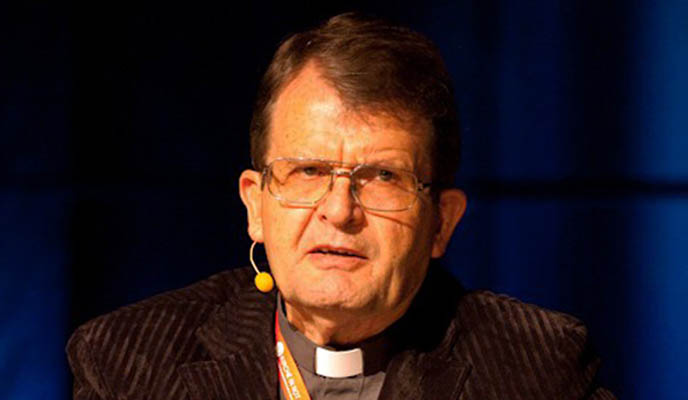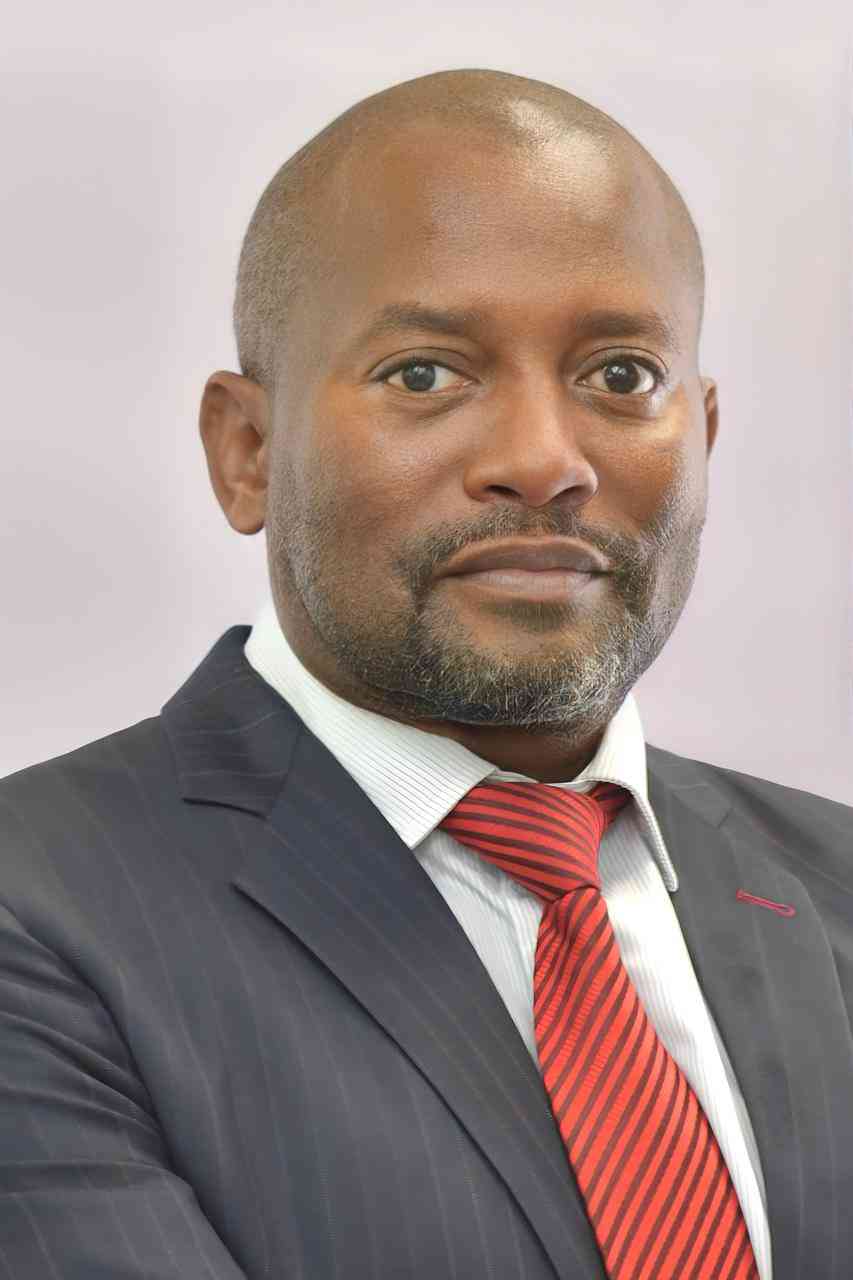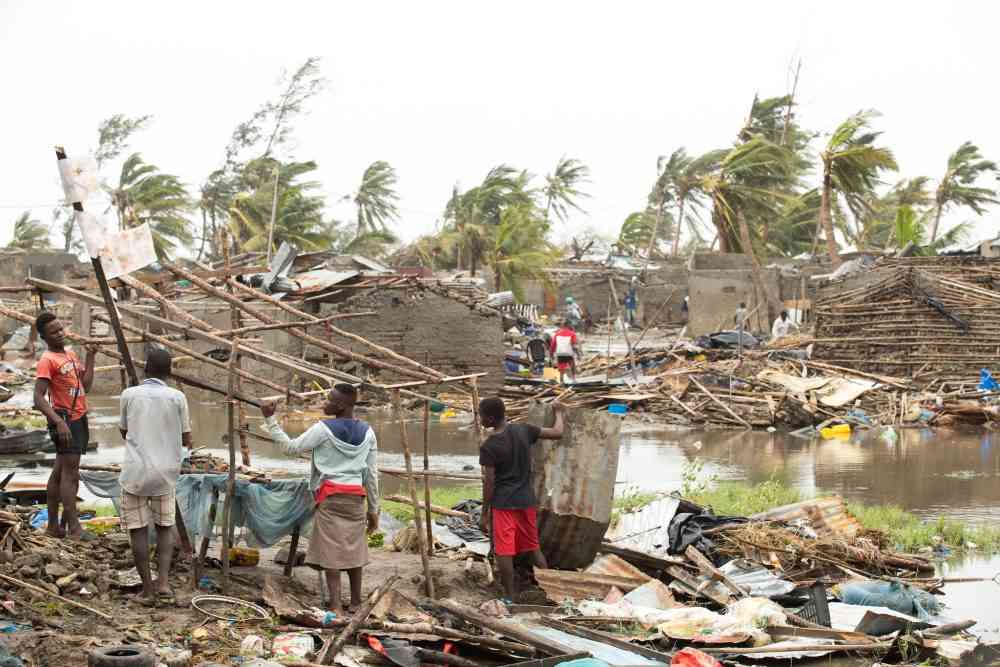
I USED to know a young woman graduate from the local university. She was vivacious, full of ideas and would have been popular as a teacher. But nobody employed her. In her desperation, she joined the army. Did they teach her how to shoot people? I hope not. These days women are ready to do anything and are expected to turn their hands to anything. Are women born to kill? Some think they are. In the minds of most of us they are born to give life, not to take and destroy it. Warning them against the military is considered old-fashioned and discriminatory.
Guest column: Fr Oskar Wermter SJ
Our war of liberation involved women very deeply. What do you do with women who have been in the thick of an indescribably cruel guerilla war, who have killed and tortured and who have been abused by their male comrades, even though they should have been treated with respect and as equals; women who are looked at as spoiled and suspected of having lost their femininity?
“You are women who have lived by the gun. Now, you are returning to take on the roles of mothers, wives, professionals and ordinary citizens. If you do not, leave behind the soldier. Your marriages will suffer. Your children will be a mess. You will not find work. It will take time to adjust, but you must put down the past. Take with you the good things you have learned; leave behind the bad. It is that simple, but it won’t be easy. The strength you have gained as freedom fighters will remain. Everything must be set down. Life goes on.” (Fr Fidelis Mukonori SJ, speaking to women ex-fighters at a rehabilitation course at Silveira House where the late Sally Mugabe took care of them.
Fay Chung, high school teacher and academic, was a freedom fighter and a party member, but she did not wield a gun. She used her skills as a teacher and set up schools for refugee children in Mozambique (Chindunduma). Women were not just playthings for sex-starved male fighters, but contributed professional skills to the “struggle”.
“Sheiba Tavarwisa, one of the first women to join the liberation struggle, was the deputy secretary for education. A strong leader, she had not only undergone military training, but had also been a pioneer of the early 1970s in transporting arms for Zanla from Zambia to Mozambique, and then into Zimbabwe. Women such as Sheiba Tavarwisa spearheaded the struggle, making it possible for the men to follow after the ground was prepared. She was also one of the first trained teachers to join the liberation struggle. Her ability to organise thousands of teachers and children into orderly schools provided an excellent foundation for Dzingai Barnabas Mutumbuka’s ambitious plans,” (Fay Chung, Re-Living the Second Chimurenga, p 205, 2006).
But women have done much more than playing soldiers and cradling weapons instead of babies. A famous American social activist and journalist, Dorothy Day, was a pacifist. As a convert to the Catholic Church she rejected completely the theory of a “just war”. She demonstrated time and again against the Vietnam War, mostly ending up for weeks and months in prisons and detention centres together with other peace activists. She advised young friends not to join the US army and to stay out of the conflict in South-East Asia. She was punished for this and got to know the inside of prisons for long periods.
She and like-minded women from the States decided to intervene in the then meeting Second Vatican Council II. They sat on the stairs of St Peter’s Basilica in Rome and lobbied the bishops from all over the globe to declare war as immoral and evil, to be banned by the church once and for all.
- Chamisa under fire over US$120K donation
- Mavhunga puts DeMbare into Chibuku quarterfinals
- Pension funds bet on Cabora Bassa oilfields
- Councils defy govt fire tender directive
Keep Reading
The document Church in the Modern World said and still tells us today with the authority of the council:
“Therefore, we declare once again: the arms race is one of the greatest curses on the human race and the harm it inflicts on the poor is more than can be endured. And there is every reason to fear that if it continues it will bring forth those lethal disasters which are already in preparation . . . let us take stock of our responsibilities and find ways of resolving controversies in a manner worthy of human beings.
Providence demands of us that we free ourselves from the age-old slavery of war. If we refuse to make this effort , there is no knowing where we will be led on the fatal path we have taken” (Vatican Council II, no 81).
There is little doubt that these women and other deeply committed workers for peace inspired these words, which hold true even today.
Women have not only refused to take up arms and be warriors who are shedding blood at all places and all time, they have lived and worked for peace and nonviolence, by teaching the young ones and nursing the victims of infectious diseases and injuries incurred in violent conflicts.
Missionary nurses persevered even in the midst of the war of liberation. Such women did not shoot and kill, but they had the courage to stay near battle-fields and come to the aid of victims. We may remember the massacred Pentecostal missionaries of Elim Mission in Manicaland (Mary Brien and Brenda Hurrell [see: Stephen Griffiths — The Axe and the Tree]), and the Dominican Sisters who died in Musami/Murewa. The Rhodesian regime forbade church hospitals to give medical aid to “freedom fighters”. Several nuns, and their bishops, got into trouble because their hospitals remained open and ready to come to the aid of any injured person, regardless of which “side” they were on. Would it really mean ‘progress’ for women if they were to fly supersonic bombers and drop nuclear bombs annihilating whole towns and cities, and wiping out large populations?
Women are our civilisation. Where they are in charge, humanity is protected from the worst of inhuman cruelty. If they felt they needed to give up their femininity and put on instead a cloak of masculinity, would that be a gain and a benefit to humankind? I do not think so. Humane police women are very much needed at a time of much “police brutality”.
I remember a policewoman who helped me in a motherly way cross a very busy city centre road when I was still a small boy.
We need women police protecting young unemployed women from human trafficking and the sexual slavery that it entails.
Let women be women wherever they are and whoever needs their aid as teachers, nurses, ambulance staff, doctors — there is no end to what they can do to humanize our culture — filling their homes and families, and our nation, with a spirit of respect for life.
Fr Oskar Wermter SJ is a social commentator











